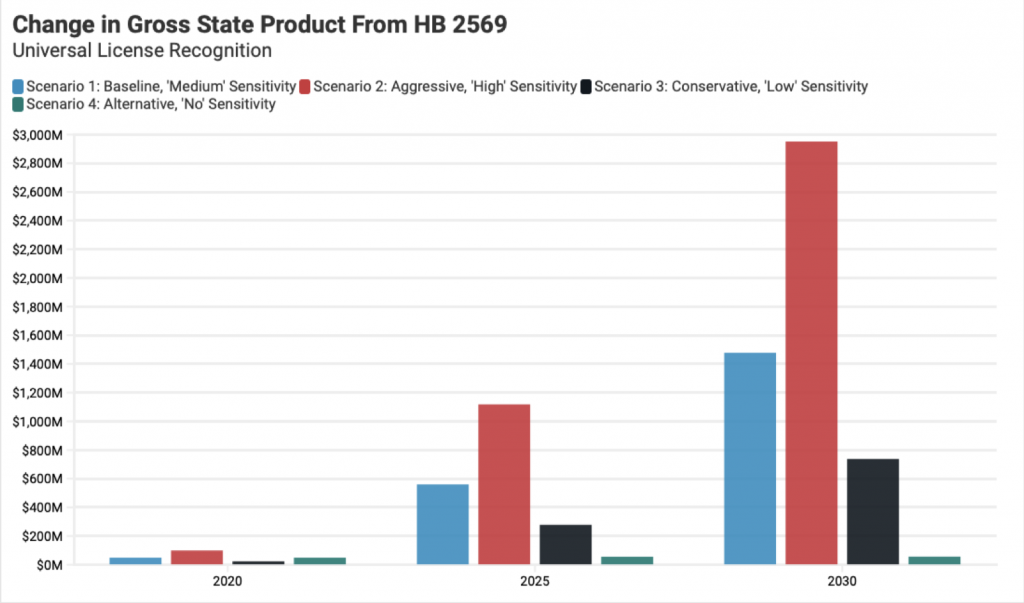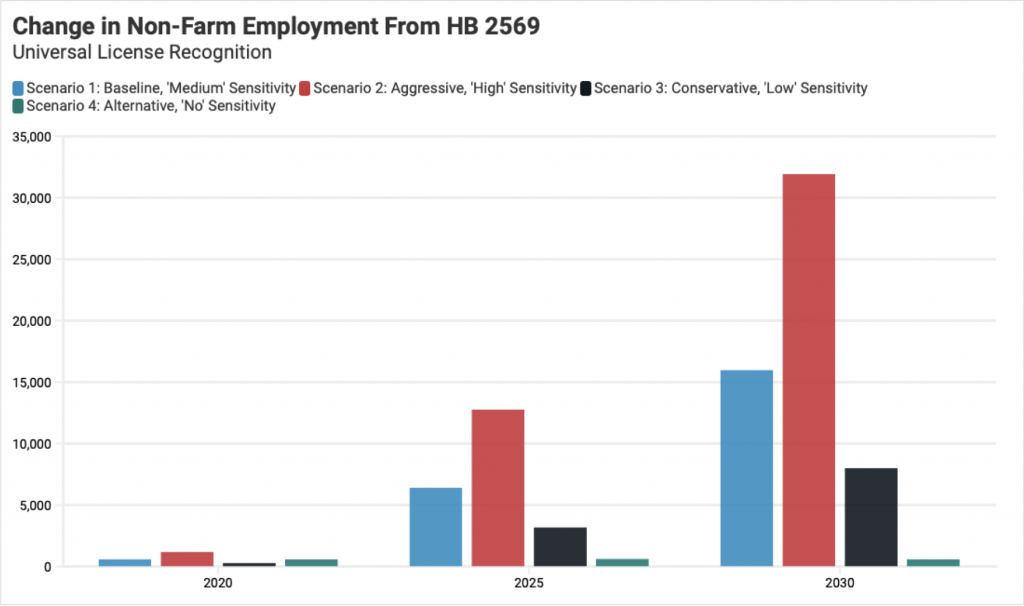A new study by the Common Sense Institute Arizona (CSI) finds that Arizona’s law to recognize occupational licenses by another state is projected to increase employment in Arizona by nearly 16,000 workers, boost state GDP by $1.5 billion, and increase the state’s population of working age adults.
Arizona in 2019 became the first state to recognize all occupational licenses – without restriction or precondition – when Gov. Doug Ducey signed into law HB 2569, which requires state licensing agencies to recognize an equivalent certification issued by another state and issue a reciprocal license to practice in Arizona.
Since then, Arizonans have applied for 5,269 licenses under the law, and 4,723 have been issued.
Additionally, this legislation has become a model for many other states.
CSI estimates that nearly one-third of Arizona jobs require a license, which costs the state roughly $16.2 billion annually, nearly 5% of the state’s GDP and more than $1,700 per person.
“The primary reason for universal occupational licenses is that they have more deleterious effects compared to unionization when it comes to worker mobility due to the fact licenses are costly to obtain in both time and money,” said Glenn Farley, director of policy and research for the Common Sense Institute Arizona. “Over the same period that we saw occupational licensing grow from 5% to 25%, we saw unionization rates exhibit the opposite trend.”
Universal licensing recognition attempts to undo the layers of licensing requirements that keep people out of the workforce.
Generally, an occupational license requires a combination of time, effort, and money to obtain, which reduces the willingness of new workers to enter a licensed occupation. This is especially true when the opportunity cost of entering the occupation is high.
Advocates for universal licensing recognition argue that someone who is already working or already has professional experience in another field must forgo that income and experience for potentially several years before being able to practice the new licensed profession.
CSI, a research think tank dedicated to facilitating dynamic economic policies, estimates that HB 2569 will result in 2,361 universal licenses issued annually, and approximately half of those will be in the healthcare services and construction sectors where Arizona has experienced severe labor shortages.
A study of 22 licensed occupations found that between-state migration for individuals with state-specific licensing requirements was 36% lower relative to members of unrestricted occupations.
“HB 2569 reduces friction created to acquire licenses and allows folks to migrate and utilize previously attained licenses from their state’s jurisdiction while boosting Arizona’s GDP by roughly 5 percent,” Farley said.
View the full report here: https://commonsenseinstituteaz.org/economic-implications-of-universal-license-recognition-a-review-of-2019s-hb-2569/


















Add comment